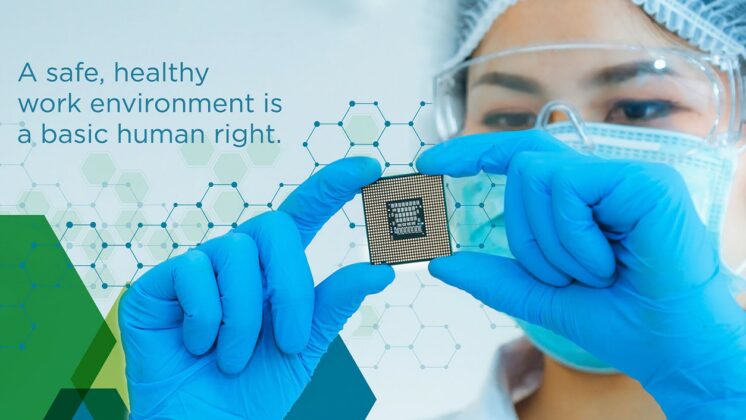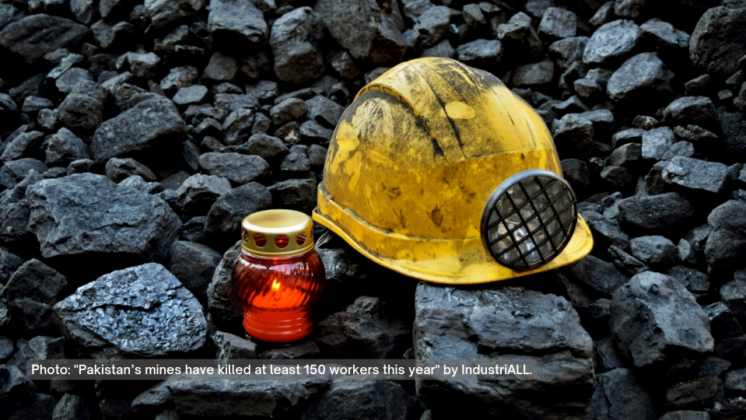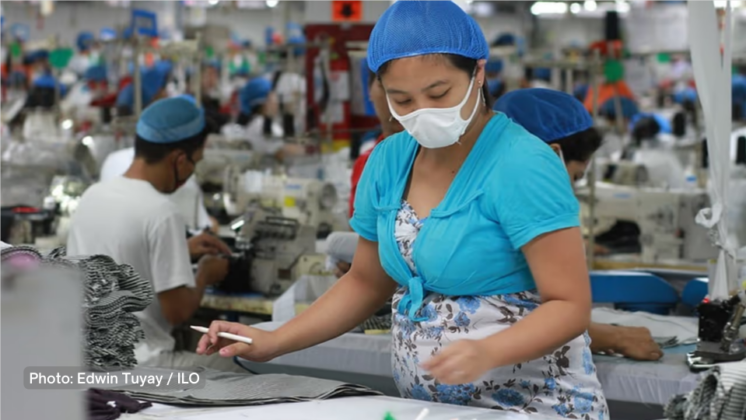Dark side of the chip. The ‘clean rooms’ of the high-tech electronics industry actually use several toxic chemicals, an article by Amanda Hawes and Ted Smith.
Forty years ago, the agricultural valley south of San Francisco was known as the Valley of Heart’s Delight because it produced such abundant fruits and vegetables. Today it is known worldwide as Silicon Valley and many of the workers who used to work in the fields picking fruit and vegetables became electronics workers, making semiconductor chips, disk drives and circuit boards for the high-tech revolution. Little did they know that they were guinea pigs in a terrible toxic tragedy.
While the electronics industry has vigorously resisted comprehensive health studies of its workers, data continues to emerge connecting work in electronics factories to serious health problems for workers and their children. This is especially crucial since all around the world most electronics production workers are women of childbearing age.
Workers in India and throughout the developing world — where the high-tech revolution is still presenting itself as the ‘clean industry’ that is the 21st century solution to the world’s problems — must be warned while there is still time.
It’s been a long time since the Valley of Heart’s Delight began to disappear in its transformation to Silicon Valley. Hopefully it’s still not too late to learn the lessons of this experience, to protect emerging ‘Silicon Valleys’ in India and throughout Asia. The growing grassroots global movement is increasingly speaking truth to power, putting a human face on the dark side of globalisation, and providing a vision for a new sustainable electronics industry. It’s about time we learned from the lessons of the past, since the future continues to be built before our very eyes, and, as we know, it is being built on even more powerful and less understood technologies such as nano technology. Our challenges are only just beginning.
We’ve learned over the years that the harm done to electronics workers is another example of “canaries in the coal mine” serving as a warning to the rest of us — that the same chemicals that cause harm in the manufacture of products have escaped into the surrounding communities and into the environment causing widespread groundwater contamination and air pollution. And, since the lifecycle of electronic products is so short, hundreds of millions of “obsolete” computers, cell phones, televisions, iPods, etc, are presenting enormous health problems as they are being discarded in massive numbers, usually dumped on the poorest communities in Asia and Africa.








